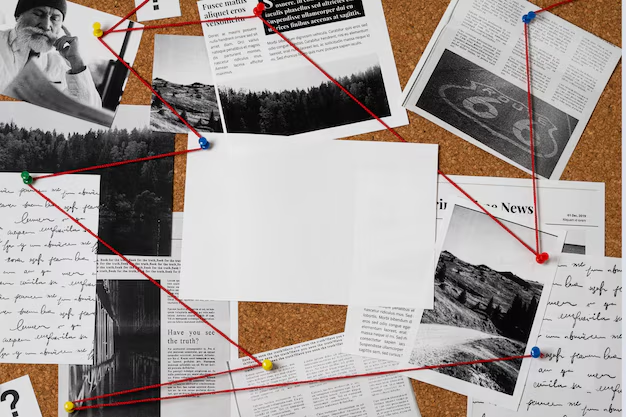5 Ultimate Psychological Warfare Books For Unforgettable Impact
Ever felt like you’re navigating a world where understanding the unspoken rules of influence is the ultimate superpower? In a society saturated with information and persuasive messaging, knowing how minds are swayed, and decisions are shaped isn’t just an advantage—it’s becoming essential for navigating daily life. Whether you’re aiming to protect yourself from manipulation, enhance your communication skills, or simply grasp the intricate dance of human interaction, the realm of psychological warfare holds a treasure trove of knowledge. But where do you even begin to explore such a complex field?
Table of Contents
You might be thinking of shadowy figures in smoky rooms plotting grand schemes, and while that’s part of the mystique, the reality is far more nuanced and, frankly, more relevant to your everyday experiences. Psychological warfare, at its core, is about understanding how to influence perceptions, emotions, reasoning, and behavior. And thankfully, you don’t need to enroll in a clandestine academy to learn the fundamental principles. The wisdom, strategies, and even ethical considerations are all laid out in some truly fascinating books.
Forget dry textbooks and academic jargon. We’re talking about books that are not only insightful but also captivating reads, books that peel back the layers of human psychology and reveal the mechanics of persuasion, coercion, and even resistance. Ready to arm yourself with knowledge? Let’s explore the top 5 psychological warfare books that deserve a spot on your reading list, and more importantly, in your arsenal of understanding.
Top 5 Psychological Warfare Books: Unlocking the Secrets of Influence

Choosing just five books in such a vast and compelling field is no easy task, but we’ve curated a list that offers a blend of classic texts, modern perspectives, and practical applications. These aren’t just historical documents; they are living blueprints for understanding the dynamics of influence that still play out around you every single day. Each book on this list offers a unique lens through which to view the world, equipping you with the critical thinking skills to analyze situations, understand motivations, and ultimately, become a more discerning and influential individual.
1. Influence: The Psychology of Persuasion by Robert Cialdini
Why it’s a must-read: If you’re looking for the cornerstone text in understanding the science of persuasion, you’ve found it. Robert Cialdini’s “Influence” isn’t just a book; it’s a meticulously researched and incredibly accessible guide to the six universal principles of influence. This book transcends the theoretical and delves into the practical, showing you exactly how these principles work in real-world scenarios, and more importantly, how they might be used on you.
Key Concepts You’ll Learn:
- Reciprocity: The ingrained human tendency to return favors, often leading us to agree to requests we might otherwise decline. Think free samples in supermarkets – they’re not just generous; they’re strategic.
- Commitment and Consistency: Once we commit to something, even small, we feel pressure to behave consistently with that commitment. Sales tactics often leverage this by getting you to agree to something minor first, making you more likely to agree to larger requests later.
- Social Proof: We look to others to determine what is correct behavior, especially in uncertain situations. This is why testimonials, reviews, and “best-seller” labels are so effective.
- Liking: We are more likely to be persuaded by people we like. Factors like similarity, compliments, and cooperation increase liking and, consequently, compliance.
- Authority: We have a deeply ingrained respect for authority figures. Titles, uniforms, and even expensive cars can trigger this principle, making us more susceptible to influence from those perceived as authoritative.
- Scarcity: Things become more desirable when they are perceived as limited or rare. “Limited-time offers” and “while supplies last” tactics exploit this principle to drive demand.
Relevance to Psychological Warfare: While “Influence” isn’t strictly about warfare, it dissects the fundamental psychological levers that are manipulated in persuasive communication, which is the very essence of psychological warfare. Understanding these principles empowers you to recognize when they’re being used against you, and ethically apply them in your own interactions. It’s about becoming a more informed and discerning consumer of information and influence.
Why it’s in the Top 5 Psychological Warfare Books: Cialdini’s work provides the foundational understanding of human behavior that underpins many psychological warfare tactics. By understanding these core principles, you’re better equipped to analyze and deconstruct manipulative strategies, whether in advertising, politics, or interpersonal relationships. It’s less about the dark arts and more about illuminating the science behind why we say “yes.”
2. Propaganda by Edward Bernays
Why it’s a must-read: Written by the “father of public relations,” Edward Bernays’ “Propaganda” offers a chillingly insightful look into the deliberate shaping of public opinion. Published in 1928, it remains startlingly relevant today, providing a historical and theoretical framework for understanding how propaganda works and its pervasive influence on society.
Key Concepts You’ll Learn:
- The Engineering of Consent: Bernays argues that in a democratic society, “invisible governors” manipulate public opinion to ensure social order and maintain power structures. He details how this “engineering of consent” is achieved through propaganda.
- Public Relations as Applied Social Science: Bernays positions public relations not just as publicity, but as a sophisticated application of psychology and social sciences to shape public attitudes and behaviors.
- Symbolism and Emotion: Propaganda often bypasses rational thought and appeals directly to emotions and subconscious desires through powerful symbols and associations. Think about how brands are built around emotional narratives, not just product features.
- The “Manufacture of News”: Bernays discusses how public relations professionals can influence news agendas and frame narratives to shape public perception of events and issues. This concept is incredibly relevant in today’s media landscape.
- Group Psychology and the Herd Mentality: Propaganda often works by targeting groups and exploiting the herd mentality, where individuals are more likely to follow the crowd than think critically for themselves.
Relevance to Psychological Warfare: “Propaganda” is essentially a textbook on the mechanics of psychological warfare applied to civilian populations. It reveals the strategies used to control public opinion, mobilize support for causes, and even manufacture desires. Understanding Bernays’ concepts is crucial for recognizing propaganda in its modern forms, from political campaigns to marketing strategies.
Why it’s in the Top 5 Psychological Warfare Books: Bernays’ book is a foundational text for anyone wanting to understand the theory and practice of mass persuasion. It provides a historical context and a critical framework for analyzing how information is manipulated to influence large groups of people. In a world of information overload and sophisticated marketing, “Propaganda” offers essential tools for critical media literacy and defense against manipulation.
3. The Art of War by Sun Tzu

Why it’s a must-read: While not explicitly about psychological warfare in the modern sense, Sun Tzu’s “The Art of War” is a timeless classic that lays out strategic principles applicable to all forms of conflict, including the psychological domain. Written in ancient China, its wisdom transcends centuries and cultures, offering profound insights into strategy, deception, and the importance of understanding your opponent.
Key Concepts You’ll Learn:
- Supreme Excellence Lies in Breaking the Enemy’s Resistance Without Fighting: Sun Tzu emphasizes that the highest form of warfare is to win without bloodshed. This is achieved by undermining the enemy’s will to fight, disrupting their alliances, and attacking their strategy, all of which are psychological tactics.
- Deception and Surprise: “All warfare is based on deception.” Sun Tzu stresses the importance of misleading the enemy about your intentions, strengths, and weaknesses to gain a strategic advantage. This is a core principle of psychological warfare – manipulating perceptions to achieve your objectives.
- Know Yourself and Know Your Enemy: Thorough intelligence gathering and self-awareness are crucial for effective strategy. Understanding your own strengths and weaknesses, as well as those of your adversary, allows you to exploit vulnerabilities and capitalize on opportunities.
- Strategic Positioning and Terrain: Choosing the right battlefield and leveraging terrain to your advantage is essential. In psychological warfare, “terrain” can be the information environment, public opinion, or the adversary’s psychological state.
- Economy of Force and Speed: Using minimal force to achieve maximum impact and acting swiftly to seize the initiative are key principles. In psychological warfare, this translates to targeted and efficient use of influence tactics to achieve rapid results.
Relevance to Psychological Warfare: “The Art of War” provides the strategic framework for thinking about psychological warfare. It teaches you to approach conflict not just as a physical battle, but as a contest of wills and perceptions. Its principles of deception, intelligence, and strategic advantage are directly applicable to designing and executing psychological operations.
Why it’s in the Top 5 Psychological Warfare Books: Sun Tzu’s masterpiece offers a foundational strategic mindset that is essential for understanding psychological warfare at a deeper level. It’s about more than just tactics; it’s about strategic thinking, understanding the dynamics of conflict, and achieving victory through intelligence and psychological maneuvering. It’s a book that will reshape how you think about competition and influence in all areas of life.
4. Psychological Warfare by Paul Myron Anthony Linebarger
Why it’s a must-read: Now we move into a book explicitly dedicated to the topic. Paul Linebarger’s “Psychological Warfare,” originally published in 1948, is a seminal work that served as a textbook for practitioners in the field. Written from a military perspective, it provides a comprehensive overview of the theory, history, and practical techniques of psychological warfare, particularly in the context of World War II and the early Cold War era.
Key Concepts You’ll Learn:
- Definitions and Scope of Psychological Warfare: Linebarger meticulously defines psychological warfare, distinguishing it from related concepts like propaganda and public relations. He outlines its various forms, objectives, and the environments in which it operates.
- Historical Examples and Case Studies: The book is rich with historical examples of psychological warfare from ancient times to World War II, illustrating both successes and failures. These case studies provide valuable lessons in what works and what doesn’t in influencing enemy populations and forces.
- Propaganda Techniques and Themes: Linebarger delves into the specific techniques of propaganda, including the use of rumors, leaflets, radio broadcasts, and other media. He discusses effective themes and appeals for different target audiences, emphasizing the importance of cultural understanding and tailoring messages.
- Organization and Planning of Psychological Warfare Operations: The book covers the organizational structures and planning processes required to conduct effective psychological warfare campaigns. This includes intelligence gathering, target audience analysis, message development, and dissemination strategies.
- Ethical Considerations and Limitations: While primarily a practical manual, Linebarger also touches upon the ethical dimensions of psychological warfare and acknowledges its limitations. He discusses the importance of truthfulness and credibility, even in the context of warfare.
Relevance to Psychological Warfare: “Psychological Warfare” is a foundational text for understanding the formal, strategic, and tactical aspects of psychological warfare as a military and political tool. It provides a detailed framework for analyzing and conducting psychological operations, offering insights into the methods and objectives of state-level influence campaigns.
Why it’s in the Top 5 Psychological Warfare Books: For anyone seeking a deep and structured understanding of psychological warfare, Linebarger’s book is indispensable. It’s a classic text that lays out the principles and practices of the field in a comprehensive and accessible way. While some aspects might be dated in terms of technology, the core psychological principles and strategic thinking remain highly relevant for understanding modern information warfare and influence operations.
5. Mind Control Language Patterns: Unleashing the Power of Hypnotic Influence by Dantalion Desaulniers

Why it’s a must-read: Shifting from macro-level strategies to micro-level tactics, Dantalion Desaulniers’ “Mind Control Language Patterns” dives into the specific language patterns used to influence and persuade individuals on a one-to-one basis. This book explores the world of conversational hypnosis and neurolinguistic programming (NLP) to reveal how language can be crafted to subtly direct thoughts and behaviors.
Key Concepts You’ll Learn:
- Hypnotic Language Patterns: Desaulniers breaks down various language patterns derived from hypnosis and NLP, such as embedded commands, presuppositions, and metaphoric language. These patterns are designed to bypass conscious resistance and communicate directly with the subconscious mind.
- Covert Hypnosis: The book focuses on covert hypnosis – influencing others without them realizing they are being influenced. This involves using subtle language techniques to plant suggestions, shift perceptions, and guide decision-making.
- Building Rapport and Trust: Effective influence starts with establishing rapport and trust. Desaulniers explains how to use language to create a connection with others, making them more receptive to your suggestions.
- Eliciting and Utilizing Emotional States: Language can be used to evoke specific emotional states in others, making them more susceptible to persuasion. Understanding how to tap into emotions like fear, desire, or curiosity is a key aspect of hypnotic influence.
- Ethical Considerations in Language Influence: Desaulniers emphasizes the ethical responsibility that comes with wielding these powerful language tools. He stresses the importance of using these techniques for positive influence and avoiding manipulation or harm.
Relevance to Psychological Warfare: While “Mind Control Language Patterns” focuses on interpersonal influence, the underlying principles are highly relevant to psychological warfare. The techniques of covert suggestion, emotional manipulation, and subconscious influence are all employed in broader psychological operations, albeit often on a larger scale. Understanding these micro-level tactics provides insight into how larger campaigns are constructed and how individuals can be influenced within those campaigns.
Why it’s in the Top 5 Psychological Warfare Books: This book offers a unique and practical perspective on the mechanics of influence at the individual level. It complements the broader strategic and theoretical frameworks of other books on this list by providing concrete language tools that can be used to shape perceptions and guide behavior. It’s essential reading for anyone wanting to understand the subtle power of language in persuasion and influence, and how these techniques might be used in both benign and manipulative contexts.
Why Read Psychological Warfare Books?
You might be wondering, “Why should I delve into psychological warfare books?” It’s a valid question. The benefits extend far beyond just understanding historical conflicts or shadowy tactics. Reading these books offers you a powerful toolkit for navigating the complexities of modern life:
- Enhanced Critical Thinking: You’ll develop a more discerning mind, able to analyze information, identify biases, and recognize manipulative techniques in media, advertising, and interpersonal communication.
- Improved Communication Skills: Understanding the principles of persuasion allows you to communicate more effectively, whether you’re negotiating, presenting ideas, or simply trying to connect with others.
- Greater Self-Awareness: Learning about influence tactics also increases your self-awareness. You’ll become more conscious of your own vulnerabilities to persuasion and better equipped to make decisions based on your own values and reasoning.
- Understanding Power Dynamics: Psychological warfare books often reveal the underlying power dynamics at play in various situations, from personal relationships to geopolitical conflicts. This understanding empowers you to navigate these dynamics more strategically.
- Personal Empowerment: Ultimately, knowledge is power. By understanding the techniques of psychological warfare, you become more resilient to manipulation and more capable of shaping your own reality and influencing the world around you in a positive way.
FAQ About Psychological Warfare Books
Got more questions about psychological warfare books? Let’s tackle some common queries:
Are psychological warfare books only relevant to military or political contexts?
Not at all. While psychological warfare originated in military and political spheres, the principles and techniques discussed in these books are highly applicable to various aspects of everyday life. From marketing and advertising to negotiation, sales, and even interpersonal relationships, understanding influence and persuasion is universally valuable.
Can reading psychological warfare books make me manipulative?
Knowledge is a tool, and like any tool, it can be used for good or ill. Reading these books will equip you with powerful insights, but it’s your ethical compass that guides how you use them. The intention of studying psychological warfare should be to understand influence, protect yourself from manipulation, and communicate more effectively and ethically.
Are these psychological warfare books difficult to read?
The readability varies by book. Cialdini’s “Influence” and Desaulniers’ “Mind Control Language Patterns” are written in a very accessible and engaging style. Bernays’ “Propaganda” is a bit more theoretical but still quite readable. Sun Tzu’s “Art of War” is concise and poetic, while Linebarger’s “Psychological Warfare” is more academic but structured for clarity. Overall, these books are chosen for their insights and readability, not for being overly dense academic texts.
Where should I start if I’m new to psychological warfare books?
A great starting point is Robert Cialdini’s “Influence.” It’s highly readable, incredibly insightful, and provides a solid foundation in the principles of persuasion. From there, you can explore other books based on your specific interests, whether it’s historical context (Linebarger), mass persuasion (Bernays), strategic thinking (Sun Tzu), or language patterns (Desaulniers).
Conclusion: Become a Master of Influence Through Psychological Warfare Books
Venturing into the world of psychological warfare books is like gaining access to a hidden operating manual for human behavior. These top 5 books offer you a comprehensive education in the art and science of influence, persuasion, and strategic thinking. From understanding the core principles of why we say “yes” to dissecting the mechanics of mass propaganda and mastering the subtle power of language, these books empower you with knowledge that is both fascinating and profoundly practical.
Don’t just remain a passive observer in a world saturated with persuasive messaging. Equip yourself with the insights and strategies found in these essential reads. Whether you’re aiming to enhance your career, strengthen your relationships, or simply navigate the complexities of modern society with greater awareness, these psychological warfare books are your gateway to mastering influence and understanding the subtle battles for the mind that are waged all around you.
Ready to dive deeper? Start with one of these recommended books and begin your journey into the captivating world of psychological warfare. Your understanding of influence – and your ability to wield it ethically – will never be the same.
Now, we’d love to hear from you! Which of these psychological warfare books intrigues you the most? Have you read any of them already? Share your thoughts and recommendations in the comments below! And if you found this article insightful, please share it with your network – let’s spread the knowledge and empower more people to understand the art of influence!

